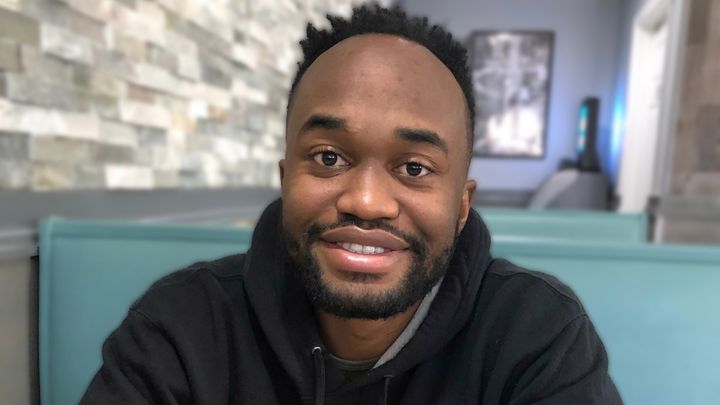
Let's get Delphin Monga through Medical School!
Donation protected
The Plains Mennonite Congregation in Hatfield, PA is organizing this fundraiser on behalf of Delphin Monga. We want to see him take the next step in his education and go on to complete his medical degree. Since Delphin and his siblings first arrived in the US in 2013, we have served as parents. Helping Delphin get through his Pre-Med studies was very important to us. Now for his next four years of schooling we need more help. Delphin has a passion to return to Africa as a medical doctor and serve where the need is great.
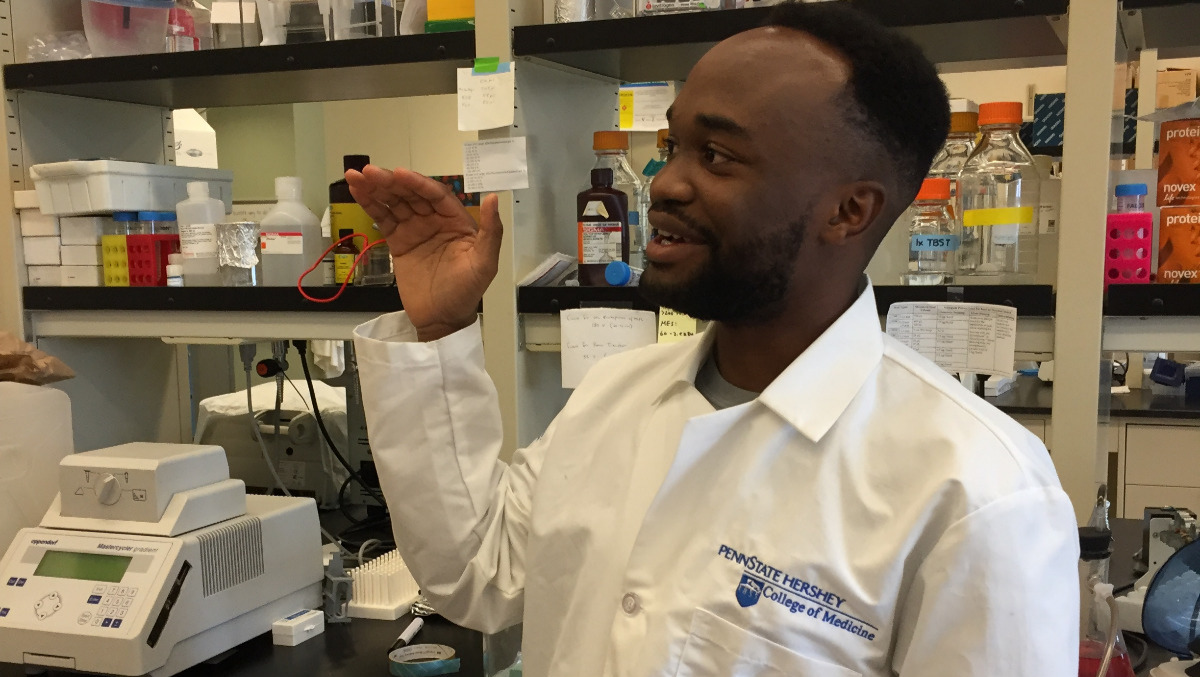
But let him tell his own story:
Hello everyone! I am Delphin Monga, a 24-year-old US citizen, born in the Democratic Republic of Congo. Before moving to the US in 2013, I fled conflict and war for a refugee camp in Uganda. After completing a Pre-med degree at Goshen College in Indiana and working and trying to save some money, I have been accepted into the Trinity School of Medicine starting this fall 2022 semester.
I am very nervous taking this leap of faith and stepping out of my comfort zone to ask for help. My financial aid is limited and I have applied for a loan but I feel the financial burden is too much to carry alone. Others have encouraged me to ask for help. Unfortunately, my mother and family in Uganda are unable to assist.
Driven to become a physician
At six years of age, I saw my village in the Democratic Republic of Congo become a place of fear and chaos. I remember hearing my heart beat rapidly. My body was paralyzed seeing my best friend in a pool of his own blood. I yelled for his mother for help. She tied a cloth around his wound to help stop the bleeding. As my friend was crying in pain, I felt hopeless and wished I could somehow ease his emotional and physical suffering. Adding further heartbreak, my father, a village leader, was killed as the rebel group overran our village. We were forced out. We made our way to live in Kyangwali Refugee Camp in Hoima, Uganda, where we finally escaped the deafening gunshots in our village called Makobola in Uvira, DRC.
The first medical clinical I saw was unexpected. It opened my eyes to a new world. Shaken awake, my brother Mbusa mumbled my name and “I got bit by a snake.” Quickly I yelled for help from our neighbors. They tied his leg and said “he would be lucky to make it with the snake venom.” I felt hopeless at that point.
We traveled to the refugee camp clinic, a new experience as my family were usually treated at home using herbal medicine and other remedies. We and our neighbors did not have access or money to seek medical attention. When Mbusa came home, I was amazed by the detailed guidelines the nurses had given us to continue his care. I became obsessed with the hospital, everything that went on there, and how helpful it was for many in the refugee camp. I wanted to visit every day to see all the people that were treated and to interacted with the nurses and doctors.
While in the U.S, I have taken every opportunity to interact with nurses and doctors, whether that be when I had a medical checkup, or escorted my family members to the hospital, while shadowing and volunteering, or when taking all the medically-related courses. Each experience has solidified my decision to become a doctor in underserved and rural communities similar to the one I grew up in.
During the summer before my junior year of college, I spent three weeks shadowing Dr. Nelson Gingerich at a care practice in Goshen, Indiana, providing care to immigrant and underserved communities. My Swahili language skills provided the opportunity to participate in the care of some of the patients. While volunteering, I was intrigued by the collaborative work and weekly meetings with all the nurses, nursing practitioners, and doctors who worked at the practice. I saw the responsibilities Dr. Gingerich had on top of other calls such as discussing a situation with the nurse practitioner for confirmation and signing medical forms that the nurses brought to him. The ability to learn from one another and make better decisions to improve health for patients solidified my interests to become a physician.
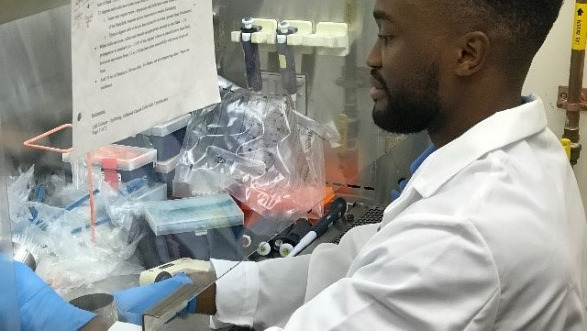
In the summer after my junior year of college, I began conducting research on pancreatic adenocarcinoma cancer that focused on cell-to-cell communication within the tumor microenvironment at Penn State College of Medicine. After graduating college, as a biomedical research technician at the University of Arizona, I worked on small cell lung cancer with a focus on NRF2, a protein that acts as a gene transcription factor that turns specific genes on or off. My goal was to understand the relationships between NRF2 levels and arsenic, an environmental toxin that induces cancer. As I advanced as a researcher, I was certified to handle lab animals such as mice while genotyping and crossing over litters for specific gene targets that our lab was studying.
During the past year, I have also been volunteering at St. Luke’s Hospital in Quakertown, where I work to help make patients’ visits to the chemotherapy infusion center a little less difficult.
These experiences made me appreciate the research process behind a lot of drugs and how they are designed to work. As a doctor, my research skills and experience providing care will help me to have a more holistic view of how to go about diagnosing medical cases while considering many possibilities rather than having tunnel vision and focusing on only a specific medication or set of symptoms.
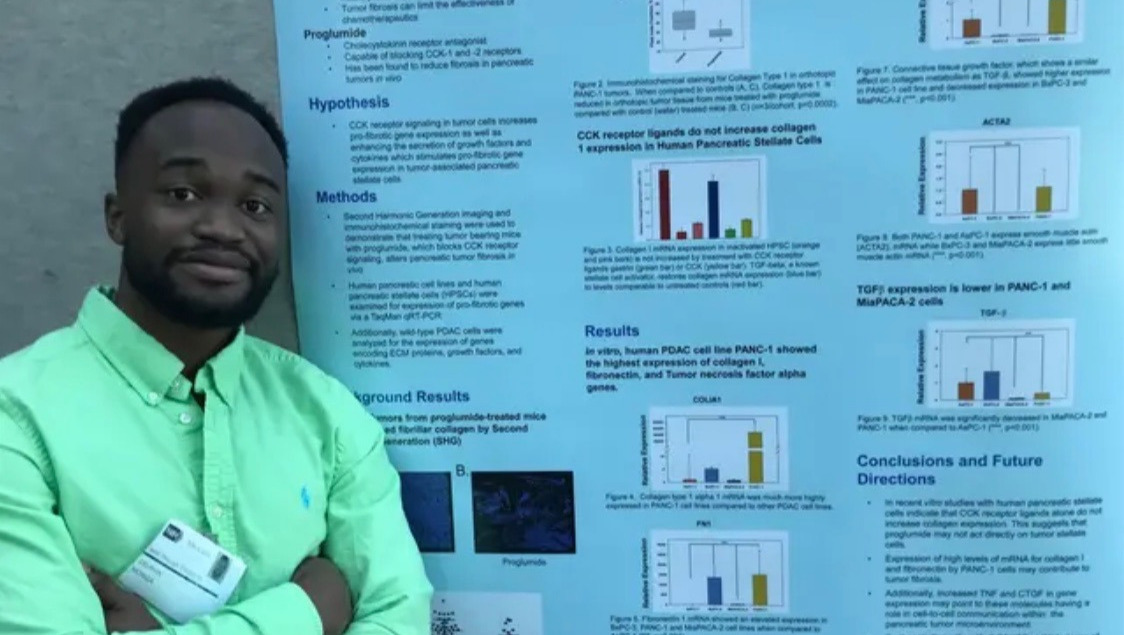
My life has been shaped by the effects of war and poverty. In Makobola, for instance, many people suffered from various diseases due to the living conditions. It was difficult for people to attain medical attention; everyone in the village had to walk miles to the clinic. Many were unable to receive immediate care. It was common to hear drum sounds from various parts of the village indicating that someone had passed away. Likewise, I also saw many people dying pointlessly because of hunger, disease, and other health-related issues in the refugee camp.
While these experiences were devastating, many of these issues could have been solved with basic medical attention and a little money. These childhood experiences, along with my love of science, are why I am driven to become a doctor. I am one of the few children in the refugee camp who had an opportunity to pursue education and medicine. I am beyond grateful for it. Attending medical school will allow me to develop medical and research skills that I can apply to make a difference in underserved areas in the world.
My first two terms of school will cost over $51,000. While I will economize my living expenses, I still need to raise at least $40,000 to begin the fall term. Anything raised over this will go toward future terms in med school. Thank you for your generous help!
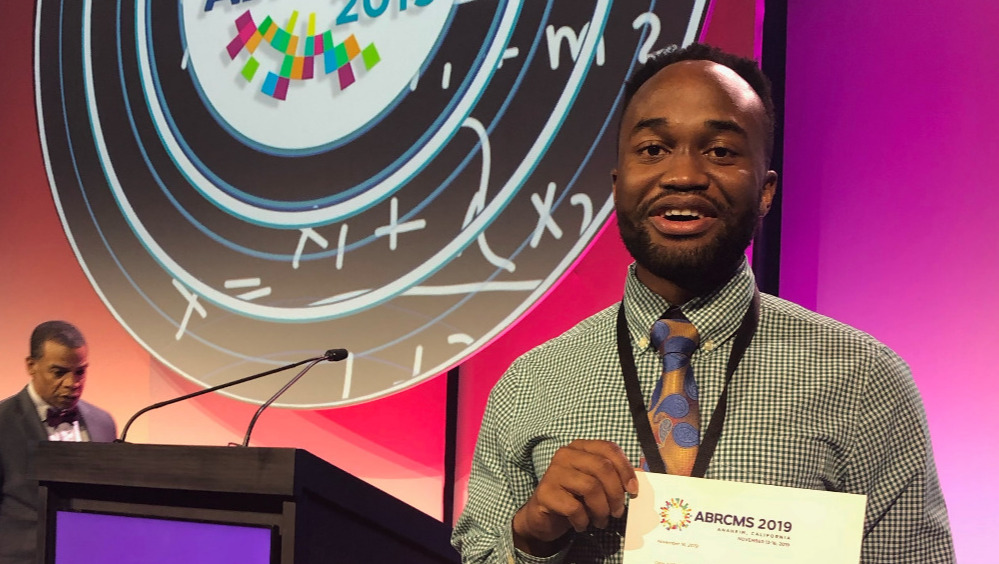

But let him tell his own story:
Hello everyone! I am Delphin Monga, a 24-year-old US citizen, born in the Democratic Republic of Congo. Before moving to the US in 2013, I fled conflict and war for a refugee camp in Uganda. After completing a Pre-med degree at Goshen College in Indiana and working and trying to save some money, I have been accepted into the Trinity School of Medicine starting this fall 2022 semester.
I am very nervous taking this leap of faith and stepping out of my comfort zone to ask for help. My financial aid is limited and I have applied for a loan but I feel the financial burden is too much to carry alone. Others have encouraged me to ask for help. Unfortunately, my mother and family in Uganda are unable to assist.
Driven to become a physician
At six years of age, I saw my village in the Democratic Republic of Congo become a place of fear and chaos. I remember hearing my heart beat rapidly. My body was paralyzed seeing my best friend in a pool of his own blood. I yelled for his mother for help. She tied a cloth around his wound to help stop the bleeding. As my friend was crying in pain, I felt hopeless and wished I could somehow ease his emotional and physical suffering. Adding further heartbreak, my father, a village leader, was killed as the rebel group overran our village. We were forced out. We made our way to live in Kyangwali Refugee Camp in Hoima, Uganda, where we finally escaped the deafening gunshots in our village called Makobola in Uvira, DRC.
The first medical clinical I saw was unexpected. It opened my eyes to a new world. Shaken awake, my brother Mbusa mumbled my name and “I got bit by a snake.” Quickly I yelled for help from our neighbors. They tied his leg and said “he would be lucky to make it with the snake venom.” I felt hopeless at that point.
We traveled to the refugee camp clinic, a new experience as my family were usually treated at home using herbal medicine and other remedies. We and our neighbors did not have access or money to seek medical attention. When Mbusa came home, I was amazed by the detailed guidelines the nurses had given us to continue his care. I became obsessed with the hospital, everything that went on there, and how helpful it was for many in the refugee camp. I wanted to visit every day to see all the people that were treated and to interacted with the nurses and doctors.
While in the U.S, I have taken every opportunity to interact with nurses and doctors, whether that be when I had a medical checkup, or escorted my family members to the hospital, while shadowing and volunteering, or when taking all the medically-related courses. Each experience has solidified my decision to become a doctor in underserved and rural communities similar to the one I grew up in.
During the summer before my junior year of college, I spent three weeks shadowing Dr. Nelson Gingerich at a care practice in Goshen, Indiana, providing care to immigrant and underserved communities. My Swahili language skills provided the opportunity to participate in the care of some of the patients. While volunteering, I was intrigued by the collaborative work and weekly meetings with all the nurses, nursing practitioners, and doctors who worked at the practice. I saw the responsibilities Dr. Gingerich had on top of other calls such as discussing a situation with the nurse practitioner for confirmation and signing medical forms that the nurses brought to him. The ability to learn from one another and make better decisions to improve health for patients solidified my interests to become a physician.

In the summer after my junior year of college, I began conducting research on pancreatic adenocarcinoma cancer that focused on cell-to-cell communication within the tumor microenvironment at Penn State College of Medicine. After graduating college, as a biomedical research technician at the University of Arizona, I worked on small cell lung cancer with a focus on NRF2, a protein that acts as a gene transcription factor that turns specific genes on or off. My goal was to understand the relationships between NRF2 levels and arsenic, an environmental toxin that induces cancer. As I advanced as a researcher, I was certified to handle lab animals such as mice while genotyping and crossing over litters for specific gene targets that our lab was studying.
During the past year, I have also been volunteering at St. Luke’s Hospital in Quakertown, where I work to help make patients’ visits to the chemotherapy infusion center a little less difficult.
These experiences made me appreciate the research process behind a lot of drugs and how they are designed to work. As a doctor, my research skills and experience providing care will help me to have a more holistic view of how to go about diagnosing medical cases while considering many possibilities rather than having tunnel vision and focusing on only a specific medication or set of symptoms.

My life has been shaped by the effects of war and poverty. In Makobola, for instance, many people suffered from various diseases due to the living conditions. It was difficult for people to attain medical attention; everyone in the village had to walk miles to the clinic. Many were unable to receive immediate care. It was common to hear drum sounds from various parts of the village indicating that someone had passed away. Likewise, I also saw many people dying pointlessly because of hunger, disease, and other health-related issues in the refugee camp.
While these experiences were devastating, many of these issues could have been solved with basic medical attention and a little money. These childhood experiences, along with my love of science, are why I am driven to become a doctor. I am one of the few children in the refugee camp who had an opportunity to pursue education and medicine. I am beyond grateful for it. Attending medical school will allow me to develop medical and research skills that I can apply to make a difference in underserved areas in the world.
My first two terms of school will cost over $51,000. While I will economize my living expenses, I still need to raise at least $40,000 to begin the fall term. Anything raised over this will go toward future terms in med school. Thank you for your generous help!

Organizer
James King
Organizer
Hatfield, PA